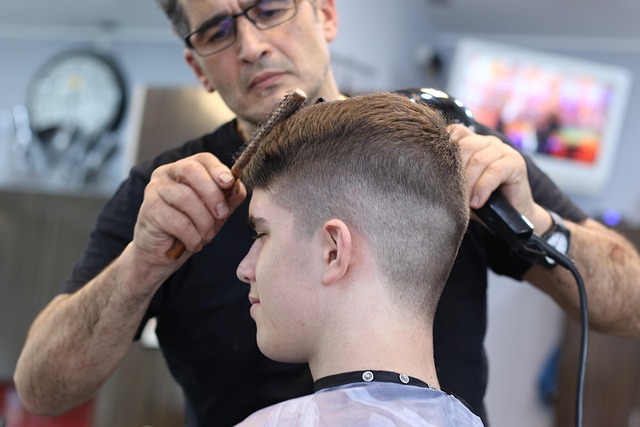Learn About The Role Of Shampoos In Caring For Scalp Psoriasis
Scalp psoriasis affects millions of people worldwide, causing uncomfortable symptoms like itching, flaking, and sometimes pain. While there isn't a cure for this chronic condition, proper scalp care—particularly through specialized shampoos—plays a crucial role in managing symptoms and improving quality of life. These medicated shampoos are specifically formulated to address the unique challenges of scalp psoriasis, helping to remove scales, reduce inflammation, and soothe irritation. Understanding how these products work and which ingredients to look for can make a significant difference in managing this challenging skin condition.

What Is Scalp Psoriasis And Its Common Symptoms?
Scalp psoriasis is a chronic autoimmune condition that causes the rapid buildup of skin cells on the scalp. This leads to the formation of thick, scaly patches that can be itchy, painful, and sometimes bleed. Common symptoms of scalp psoriasis include:
-
Red, inflamed patches on the scalp
-
Silvery-white scales or plaques
-
Intense itching and burning sensation
-
Dry, flaky skin that may fall onto the shoulders
-
Temporary hair loss in severe cases
These symptoms can vary in severity from person to person and may come and go in cycles. Understanding the nature of scalp psoriasis is crucial for effective management and treatment.
Do Shampoos Actually Help Manage Scalp Psoriasis?
Shampoos play a significant role in managing scalp psoriasis. While they may not cure the condition, specially formulated shampoos can help alleviate symptoms and improve the overall health of the scalp. These shampoos work in several ways:
-
Reducing inflammation: Many psoriasis shampoos contain ingredients that help calm the inflamed skin on the scalp.
-
Removing scales: Medicated shampoos can soften and remove the thick, scaly patches characteristic of psoriasis.
-
Controlling itching: Some shampoos include ingredients that provide relief from the intense itching associated with scalp psoriasis.
-
Slowing cell growth: Certain active ingredients in psoriasis shampoos can help slow down the rapid skin cell turnover that leads to plaque formation.
Regular use of appropriate shampoos, as part of a comprehensive treatment plan, can significantly improve the comfort and appearance of the scalp for those with psoriasis.
Which Ingredients Are Most Effective In Scalp Psoriasis Shampoos?
When choosing a shampoo for scalp psoriasis, it’s essential to look for products containing specific active ingredients known for their effectiveness in managing the condition. Some of the most beneficial ingredients include:
-
Salicylic acid: This ingredient helps soften and remove scales, making it easier to wash them away.
-
Coal tar: Known for its ability to slow skin cell growth and reduce inflammation, coal tar is a common ingredient in psoriasis shampoos.
-
Ketoconazole: This antifungal agent can help reduce inflammation and scaling.
-
Zinc pyrithione: Often used in dandruff shampoos, it can also be effective for mild scalp psoriasis.
-
Clobetasol propionate: A potent corticosteroid that can be found in prescription shampoos for more severe cases.
-
Tea tree oil: This natural ingredient has antimicrobial and anti-inflammatory properties that may benefit some individuals with scalp psoriasis.
It’s important to note that different ingredients may work better for different people, and it may take some trial and error to find the most effective shampoo for your specific case.
How To Properly Use Shampoos For Scalp Psoriasis
To maximize the benefits of psoriasis shampoos, it’s crucial to use them correctly. Here are some tips for proper application:
-
Wet your hair and scalp thoroughly with warm water.
-
Apply the shampoo directly to your scalp, not just your hair.
-
Gently massage the shampoo into your scalp with your fingertips, avoiding scratching.
-
Leave the shampoo on for the recommended amount of time (usually 5-10 minutes) to allow the active ingredients to work.
-
Rinse thoroughly with warm water.
-
Follow up with a moisturizing conditioner if needed, applying it only to the hair and not the scalp.
For best results, use the medicated shampoo as directed by your healthcare provider or the product instructions. Some shampoos may be used daily, while others are intended for less frequent use.
Which Types Of Shampoos Work Best For Different Severities Of Scalp Psoriasis?
The severity of scalp psoriasis can vary greatly from person to person, and the choice of shampoo should reflect the individual’s needs. Here’s a general guide to selecting shampoos based on the severity of the condition:
Mild scalp psoriasis:
-
Over-the-counter shampoos containing salicylic acid or coal tar
-
Zinc pyrithione shampoos
-
Tea tree oil shampoos
Moderate scalp psoriasis:
-
Stronger over-the-counter coal tar shampoos
-
Prescription shampoos with ketoconazole
-
Combination of over-the-counter and prescription products
Severe scalp psoriasis:
-
Prescription-strength corticosteroid shampoos (e.g., clobetasol propionate)
-
Rotation of different medicated shampoos as recommended by a dermatologist
-
Combination therapy with other treatments like topical medications or light therapy
| Severity | Recommended Shampoo Types | Key Ingredients | Estimated Cost Range |
|---|---|---|---|
| Mild | Over-the-counter | Salicylic acid, Coal tar, Zinc pyrithione | $10 - $30 |
| Moderate | OTC and prescription | Ketoconazole, Stronger coal tar | $20 - $50 |
| Severe | Prescription-strength | Clobetasol propionate | $50 - $100+ |
Prices, rates, or cost estimates mentioned in this article are based on the latest available information but may change over time. Independent research is advised before making financial decisions.
Choosing the right shampoo for scalp psoriasis is an important part of managing the condition. While shampoos alone may not provide complete relief, they can significantly improve symptoms when used as part of a comprehensive treatment plan. It’s essential to work closely with a dermatologist or healthcare provider to determine the best approach for your individual case. With patience and proper care, many people with scalp psoriasis can achieve better control over their symptoms and enjoy healthier, more comfortable scalps.
This article is for informational purposes only and should not be considered medical advice. Please consult a qualified healthcare professional for personalized guidance and treatment.




